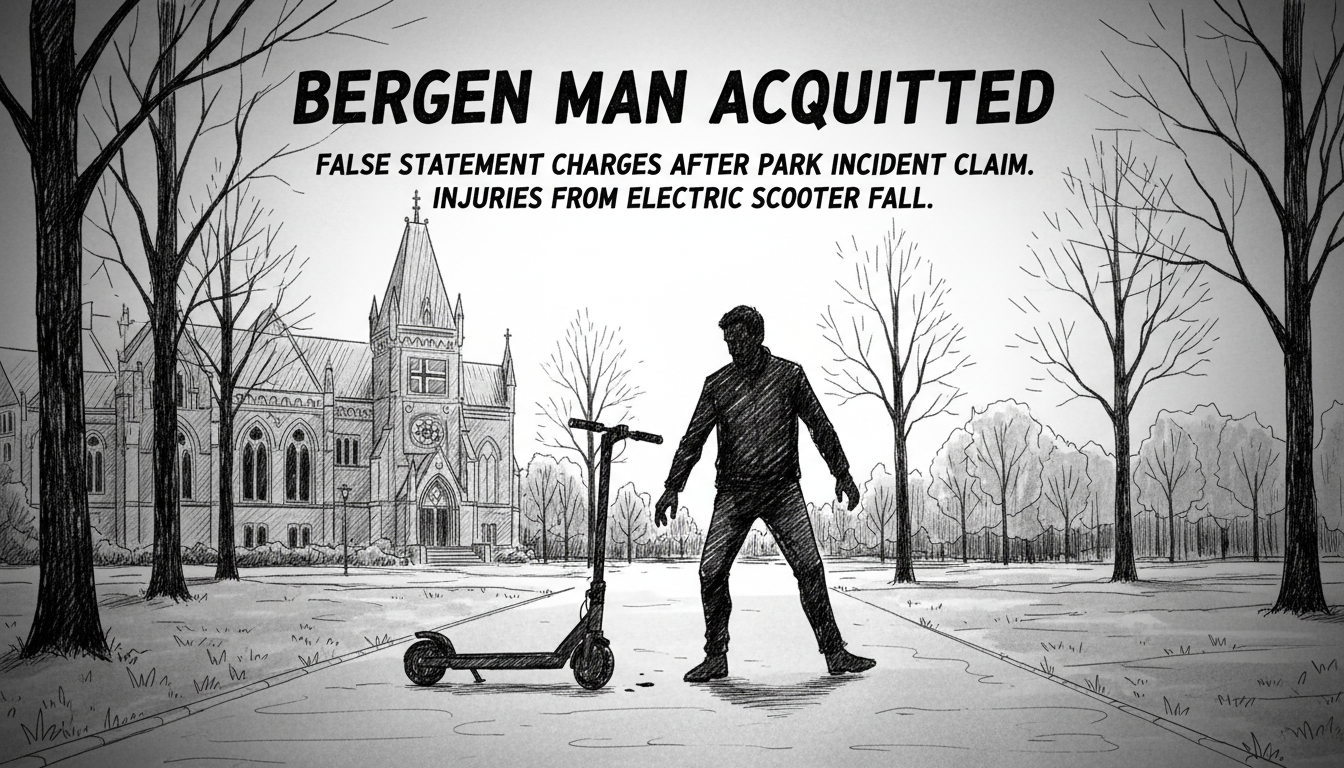A Bergen court has acquitted Hamse Mohamoud Ali of providing false statements about an alleged violent attack in Nygårdsparken. The Hordaland District Court delivered its verdict on Wednesday following a thorough investigation into the September incident.
The case began when Ali reported being assaulted by six unknown men in the central Bergen park. He claimed the attack was racially motivated and resulted in facial and mouth injuries. Police launched an immediate investigation into the alleged hate crime.
Norwegian authorities conducted extensive reviews of surveillance footage and witness statements. Their investigation revealed a different sequence of events. Evidence showed Ali was not actually present in Nygårdsparken at the time he claimed the assault occurred.
Instead, investigators determined Ali had been riding an electric scooter past the park area. The court concluded his injuries resulted from a fall during that scooter ride, not from any physical assault.
Why did the court acquit him despite the false statement? The judgment hinged on reasonable doubt about intent. Judges could not determine whether Ali deliberately misled authorities or simply became confused following his accident.
This case highlights important aspects of Norway's legal system. The burden of proof requires establishing both the act and the intent behind it. Without clear evidence of deliberate deception, the court erred on the side of caution.
False reporting cases present complex challenges for law enforcement. They must balance thorough investigation with protection against wrongful convictions. This becomes particularly sensitive when cases involve claims of racial motivation.
Bergen has seen increased attention on public safety in recent years. Nygårdsparken specifically has been part of ongoing urban improvement discussions. The park serves as both a recreational area and transportation corridor through the city center.
The case outcome demonstrates how Norwegian courts handle conflicting accounts. They prioritize evidence over initial claims while maintaining strict standards for proving criminal intent. This approach reflects Norway's commitment to both justice and proportional response.
What implications does this have for future hate crime reporting? Legal experts suggest it won't discourage legitimate reports but may prompt more thorough initial investigations. Authorities continue encouraging victims to come forward while emphasizing the importance of accurate information.
The Bergen police department has not indicated whether they will pursue alternative charges. Their focus remains on maintaining public trust while ensuring proper use of investigative resources.
Electric scooter safety has become another talking point emerging from this case. As micro-mobility options grow in Norwegian cities, accident reporting and injury documentation procedures may need refinement.
Local community leaders emphasize that one case should not undermine genuine efforts to combat racism. They note that proper investigation procedures ultimately strengthen community trust in law enforcement and the judicial system.
